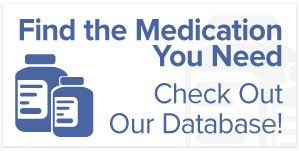Mononucleosis is a viral ailment caused by the Epstein-Barr virus (EBV). Infectious mononucleosis is commonly referred to as the kissing disease. The Epstein-Barr virus that causes mono can be transferred orally. Not only is HPV transmitted through physical contact, such as a kiss, but it can also spread by sharing items, such as a drinking glass or a fork, with an infected person. In contrast to several other illnesses, such as the common cold, mononucleosis is not very easily spread from person to person.
Young adults and teenagers are at the highest risk of developing classic mononucleosis. The illness is typically misdiagnosed in young children since it rarely causes noticeable symptoms.
Mononucleosis Causes
The following are the mononucleosis causes:
- Contact with infected saliva is the primary mode of transmission of the Epstein-Barr virus. This can happen if you kiss an infected person or if you use the same fork, spoon, or glassware as an infected person.
- Exhaustion, sore throat, fever, swollen tonsils, and swollen lymph nodes are potential symptoms of mono. It’s not uncommon for the symptoms to linger for a few months.
- Symptoms, a thorough physical, and the detection of EBV antibodies in the blood contribute to the mono diagnosis.
Mononucleosis Cure
There is currently no cure for mono. Symptoms, such as a fever and sore throat, should be treated by reducing their severity and resting as much as possible. Hospitalization may be necessary for extremely unusual circumstances due to complications.
The discomfort of mononucleosis symptoms is outweighed by the fact that the infection clears up without any lasting repercussions. Most mature human beings have had prior exposure to the Epstein-Barr virus, allowing them to develop protective antibodies. This ensures that they will not contract mononucleosis in the future.

Now no vaccination is available to prevent mono; however, avoiding infectious saliva can help lower your risk of contracting the disease. Avoid kissing if you or your spouse is showing signs of mono, and don’t share cutlery or glasses with someone who is ill.
Complications
While mono normally resolves on its own, it can cause issues like an enlarged spleen that can burst in rare cases and low platelet counts.
The consequences of an Epstein-Barr virus infection might last for years. It has been associated with an increased risk of malignancy, including Burkitt’s lymphoma and nasopharyngeal carcinoma.
Final Word
Mononucleosis, an infection caused by the Epstein-Barr virus, is characterized by a wide range of symptoms, including weakness, fever, and a sore throat. Although there is currently no cure for the disease, it can be controlled by obtaining sufficient rest and alleviating any associated symptoms. It’s crucial to be aware of the potential long-term implications of EBV infection and to take measures to avoid spreading the virus. Epstein-Barr virus is the most prevalent cause of mononucleosis, but other viruses can produce the same symptoms. It is possible to contract this virus through oral contact, such as a kiss or sharing food or drink. Contact The RX Helper to get the help you need.



